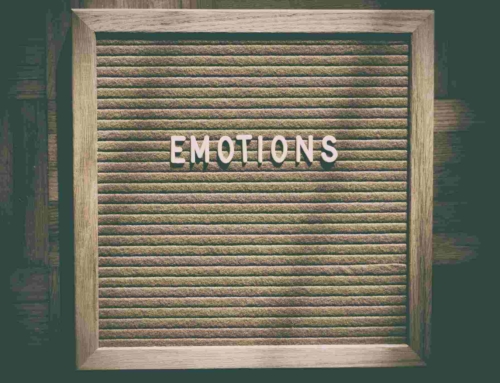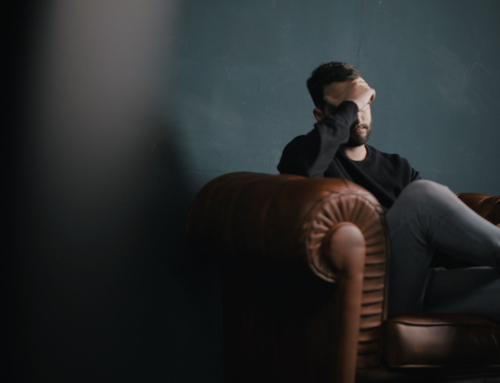What is Bipolar Depression? How is it related to Bipolar Disorder? This article will offer an explanation as well as symptoms to look for and various treatment options available.
Let’s start by looking at some of the facts.
Bipolar Disorder is a chronic type of mood disorder. It actually used to be called manic depression because people with Bipolar Disorder go through periods of intense depression and other periods where their mood is extremely high. These high periods are known as mania.
 It is equally as important to note that most people with Bipolar Disorder also have periods where their moods are what most of us would consider to be normal. Bipolar Depression is the depressive phase of this ailment. Figuring out whether you have Bipolar Depression can be a journey, but you must remember that you are not alone.
It is equally as important to note that most people with Bipolar Disorder also have periods where their moods are what most of us would consider to be normal. Bipolar Depression is the depressive phase of this ailment. Figuring out whether you have Bipolar Depression can be a journey, but you must remember that you are not alone.
Because Bipolar Disorder is made up of two parts, the depression and the mania, the symptoms are very different depending on whether you are in a manic or depressive phase of the disorder. Currently, there is no one definitive test or quiz to diagnose Bipolar Disorder.
Below, I’ve listed some of the most common signs and symptoms that you can look for:
Symptoms of Bipolar Depression
- I have overwhelming feelings of sadness or grief
- I’ve lost interest in taking part in activities I used to enjoy
- I find myself avoiding other people
- I’m sleeping more or less than usual
- I’m eating more or less than usual
- I’m having difficulty concentrating or making decisions
- I’m feeling extremely irritable and angry
- I’m feeling guilty all the time
- I’ve lost my energy; I’m feeling very tired
- I’ve lost my desire for sex
- I’m feeling worthless, helpless or hopeless
- I’ve had thoughts of death or suicide
Symptoms of Bipolar Mania
- I’ve been in an excessively high or elevated mood
- I feel extremely irritable or angry
- I’m optimistic about everything, even when others aren’t
- I’m making quick decisions often without thinking them through
- I’m spending money more quickly or my sexual habits have changed
- My thoughts are racing; I have a lot of plans
- I’m really energetic; I can’t seem to stay still
- I’m talking all the time
 I’m talking more quickly than usual and people seem to have a hard time understanding me I’m feeling little need for sleep
I’m talking more quickly than usual and people seem to have a hard time understanding me I’m feeling little need for sleep- I have an extremely short attention span
- I’m seeing or hearing things that other people aren’t experiencing
Remember you don’t necessarily have to have all of these symptoms to be suffering from Bipolar Disorder, as many of these symptoms can be caused by other illnesses. The best thing to do if some of these symptoms apply to you is to talk to your primary care provider or a mental health professional.
Causes of Bipolar Disorder
No one knows exactly what causes Bipolar Disorder. Lots of recent research has focused on looking for causes in genetics or the biology of the brain, but many researchers also believe social factors may play a part, such as difficult life events or experiencing trauma as a child
- Childhood trauma: Because experiencing trauma and distress as a child can have a big effect on your ability to regulate your emotions, some experts believe you may develop Bipolar Disorder if you experienced severe emotional distress as a child, such as sexual or physical abuse, neglect, traumatic events, loss of someone close to you, like a parent or caregiver.
- Stressful life events: Although lower levels of stress are unlikely to cause Bipolar Disorder, they can trigger an episode of mania or depression. You may be able to link the start of your symptoms to a very stressful period in your life, such as a relationship breakdown, financial worries, experiencing a traumatic loss of a job or a loved one.
- Self-esteem problems: Some researchers believe that a manic episode may be a way to escape from feeling very depressed or having very low self-esteem. It may be that when you feel very bad about yourself, mania increases your self-confidence and your ability to cope.
- Brain chemistry: Evidence shows that bipolar symptoms can be treated with certain psychiatric medications, which are known to act on the neurotransmitters (messenger chemicals) in your brain. This suggests that Bipolar Disorder may be related to problems with the function of these neurotransmitters.
Nevertheless, no one knows for certain exactly what causes Bipolar Disorder. Depending on the way you experience different bipolar moods and symptoms, and how severely they affect you, your doctor may diagnose you with a particular type of Bipolar Disorder.
- Bipolar I Disorder, characterized by at least one manic episode. This may or may not be followed by a depressive episode.
- Bipolar II Disorder, characterized by at least one major depressive episode lasting at least two weeks, and at least one episode of hypomania (a milder condition than mania) that lasts for at least four days.
- Cyclothymic Disorder, characterized by at least two years of symptoms. With this condition, the person has many episodes of hypomanic symptoms that don’t meet the full criteria for a hypomanic episode. They also have depressive symptoms that don’t meet the full diagnostic criteria for a major depressive episode. They’re never without symptoms for longer than two months at a time.
God is Bigger Than Your Bipolar
But he said to me, “My grace is sufficient for you, for my power is made perfect in weakness.” – 2 Corinthians 12:9
 Depression or Bipolar Disorder do not occur because of weak faith. As we go through life and its many trials and tribulations, we have to learn patience because most issues do not get resolved overnight and some may have no solution at all.
Depression or Bipolar Disorder do not occur because of weak faith. As we go through life and its many trials and tribulations, we have to learn patience because most issues do not get resolved overnight and some may have no solution at all.
As we go through these challenges we begin to gain experience and we grow over time, we begin see learn how God got us through it all. As we experience God getting us through, we start to develop hope.
We develop hope because our experience teaches us that since God got us through it this far, He will continue to get us through it. We learn that He will give us the solutions and the peace of mind that comes with victory that is a result of bigger and bigger measures of grace and faith. This hope then enables us to move unashamed, as we step out and do great things for the Lord – no longer viewed as victims of our circumstances or ailments, but as victors in Christ Jesus!
Therefore, since we have been justified through faith, we have peace with God through our Lord Jesus Christ, through whom we have gained access by faith into this grace in which we now stand. And we boast in the hope of the glory of God. Not only so, but we also glory in our sufferings, because we know that suffering produces perseverance; perseverance, character; and character, hope. And hope does not put us to shame, because God’s love has been poured out into our hearts through the Holy Spirit, who has been given to us. You see, at just the right time, when we were still powerless, Christ died for the ungodly. – Romans 5:1-6
Christian Counseling for Bipolar Depression
If you’re already diagnosed with Bipolar Depression and still struggling with many of its symptoms, you can talk to a counselor about how you’re feeling and explore some psychotheraputic techniques to help you better manage your symptoms. Usually, the core treatment for Bipolar Disorder is a combination of medication and psychotherapy. Psychotherapy typically involves one-on-one sessions with a counselor.
Cognitive Behavioral Therapy (CBT) is one of the more common types of psychotherapy. It can be used in a number of ways, including:
 managing the symptoms of mental illnesses
managing the symptoms of mental illnesses- preventing behaviors which can result in a relapse into those symptoms
- learning effective coping techniques to help control emotions and stress
- acting as an alternative treatment when medications are ineffective or not an option
The primary goal of CBT is to help you gain a new outlook on your situation. It does this by directly challenging negative thoughts and fears and teaching you to control or get rid of them.
During the session, you and your counselor will work together to:
- Determine the problem: This can be mental illness, work or relationship stress, or anything else that’s bothering you.
- Examine the thoughts, behaviors, and emotions associated with these problems: Once the problems are identified, you will work with the therapist to begin looking at how you’re reacting to those problems.
- Spot negative or inaccurate thoughts, behaviors, and emotions: There are a number of ways you can perceive or deal with an issue that actually worsens the problem. This can include thinking negatively about yourself, or focusing on the negative aspects of a situation or occurrence.
- Change your reaction to personal issues: During a session, you and the therapist work together to replace these negative thoughts with more positive or constructive ones. These can include thinking positively about your ability to cope and attempting to view a situation more objectively.
Your counselor can help you gain new insights into your condition and help you develop more Biblically-based solutions on how to live the life that God intended for you to live. With Biblical counseling, you can learn how to deal with Bipolar Disorder biblically while rediscovering your value to God as His beloved child.
Lastly, remember in order to do what is right, we must know what is true. Bipolar Disorder alters a person’s perceptions of reality, so a strong foundation in truth is a necessity when dealing with its symptoms. Someone with Bipolar Disorder or manic depression might give in to the misperceptions caused by the disease and commit sinful acts.
A person with Bipolar Disorder must treat those sins like any other person should. He should recognize his actions as sinful, repent, and seek forgiveness. Believers with Bipolar Disorder should never blame their illness for their actions. What people with Bipolar Disorder need more than anything else is hope – hope that is in Christ Jesus; hope that even though their illness tries to steal their joy and lives away, they can have an abundant life in Christ, our Lord and Savior.
“Man in a Mask”, Courtesy of Abdulrahman Abu Shaer, Pexels.com, CC0 License; “Clown Doll”, Courtesy of Pixabay, Pexels.com, CC0 License; “Hope”, Courtesy of Shayla, Pexels.com, CC0 License; “Praying the Word”, Courtesy of Pixabay, Pexels.com, CC0 License









